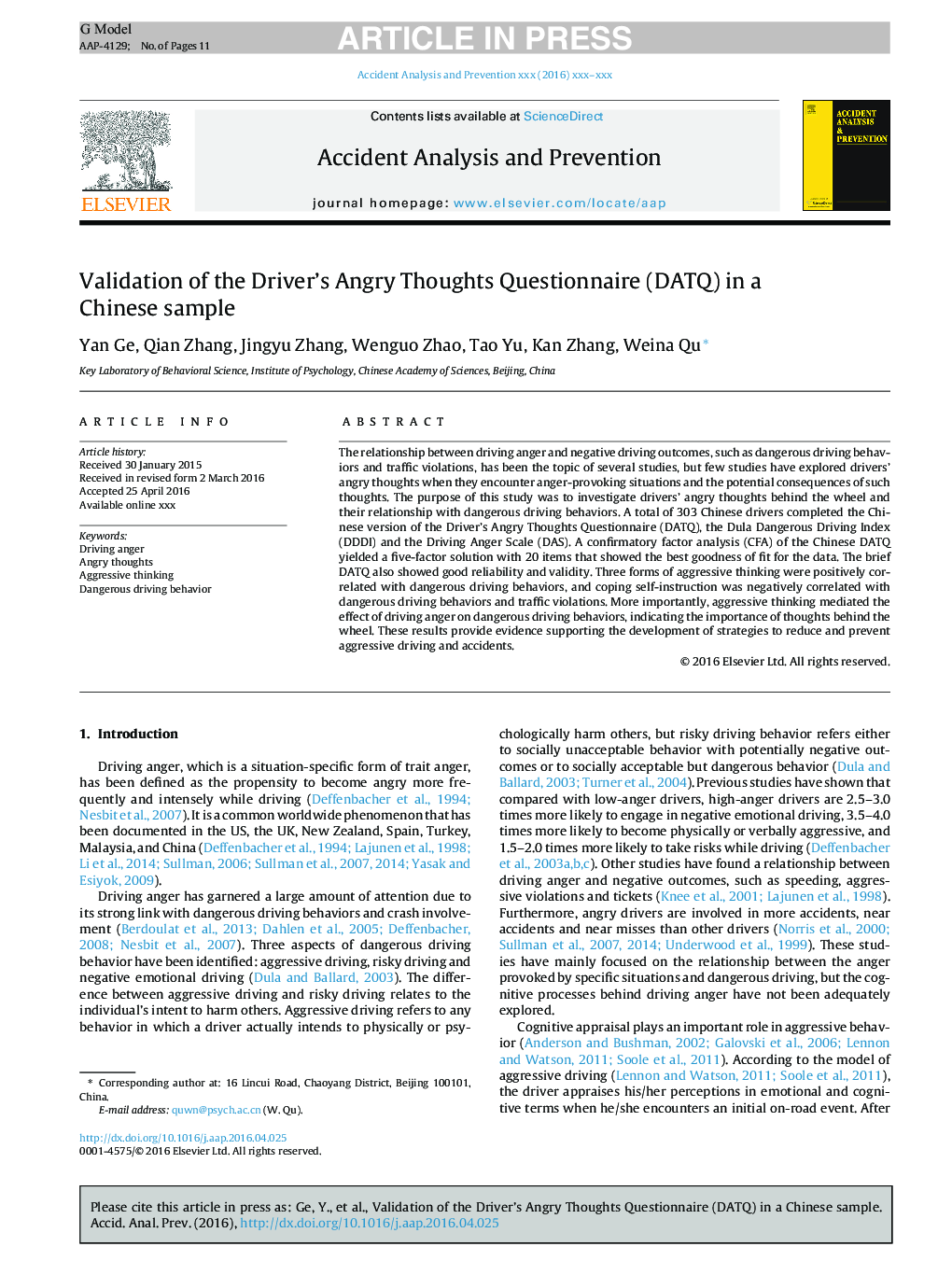| Article ID | Journal | Published Year | Pages | File Type |
|---|---|---|---|---|
| 4978790 | Accident Analysis & Prevention | 2016 | 11 Pages |
Abstract
The relationship between driving anger and negative driving outcomes, such as dangerous driving behaviors and traffic violations, has been the topic of several studies, but few studies have explored drivers' angry thoughts when they encounter anger-provoking situations and the potential consequences of such thoughts. The purpose of this study was to investigate drivers' angry thoughts behind the wheel and their relationship with dangerous driving behaviors. A total of 303 Chinese drivers completed the Chinese version of the Driver's Angry Thoughts Questionnaire (DATQ), the Dula Dangerous Driving Index (DDDI) and the Driving Anger Scale (DAS). A confirmatory factor analysis (CFA) of the Chinese DATQ yielded a five-factor solution with 20 items that showed the best goodness of fit for the data. The brief DATQ also showed good reliability and validity. Three forms of aggressive thinking were positively correlated with dangerous driving behaviors, and coping self-instruction was negatively correlated with dangerous driving behaviors and traffic violations. More importantly, aggressive thinking mediated the effect of driving anger on dangerous driving behaviors, indicating the importance of thoughts behind the wheel. These results provide evidence supporting the development of strategies to reduce and prevent aggressive driving and accidents.
Keywords
Related Topics
Physical Sciences and Engineering
Chemical Engineering
Chemical Health and Safety
Authors
Yan Ge, Qian Zhang, Jingyu Zhang, Wenguo Zhao, Tao Yu, Kan Zhang, Weina Qu,
